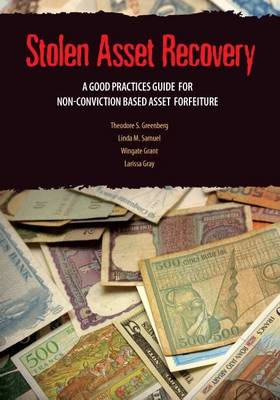Non-Conviction Based (NCB) asset forfeiture is a powerful tool for recovering the proceeds and instrumentalities of corruption, particularly in cases where the proceeds are transferred abroad. A procedure that provides for the restraint, seizure, and forfeiture of tainted assets without the need for a criminal conviction, it can be critical when the wrongdoer is dead, has fled the jurisdiction, or is immune from prosecution features common in cases of grand corruption. A growing number of jurisdictions have established a system to allow NCB forfeiture. In addition, NCB forfeiture has been recommended as a tool for asset recovery at regional and multilateral levels. The United Nations Convention Against Corruption (UNCAC) urges countries to permit NCB forfeiture of illegally acquired assets when the offender cannot be prosecuted in Article 54(1)(c). With this increased attention to NCB forfeiture, there is a corresponding need for a practical tool for use by jurisdictions contemplating NCB forfeiture legislation. Stolen Asset Recovery: A Good Practices Guide for Non-Conviction Based Asset Forfeiture is designed as this practical tool. It is the first of its kind in the area of NCB asset forfeiture and the first knowledge publication under the Stolen Asset Recovery (StAR) Initiative. A collaborative effort of practitioners of forfeiture and NCB forfeiture, this book identifies the key concepts - legal, operational and practical - that an NCB asset forfeiture system should encompass to be effective in recovering stolen assets. The concepts are elaborated through examples from cases and excerpts from NCB forfeiture legislation. Further, the book provides tools that can be used by practitioners, such as samples of investigative and court forms and pre-seizure planning guidelines.
- ISBN13 9780821378908
- Publish Date 30 April 2009
- Publish Status Active
- Publish Country US
- Imprint World Bank Publications
- Pages 280
- Language English
